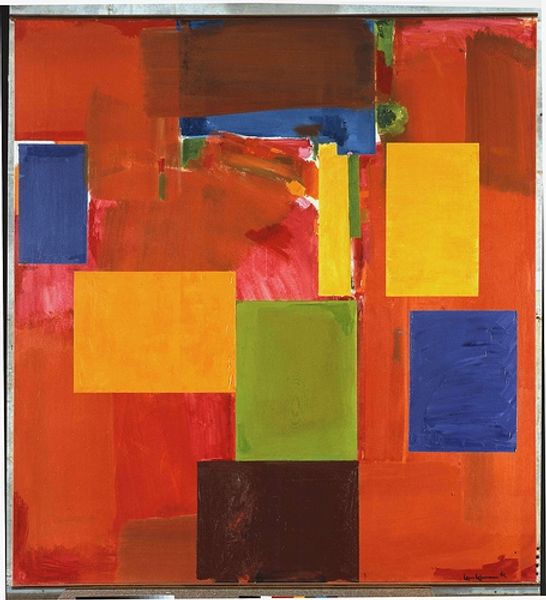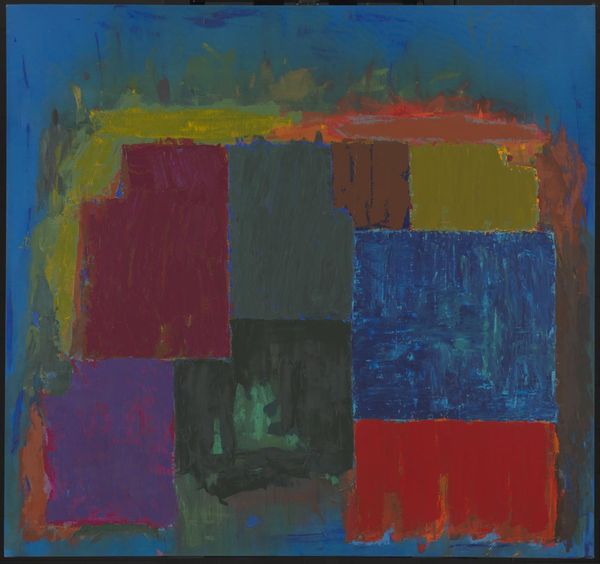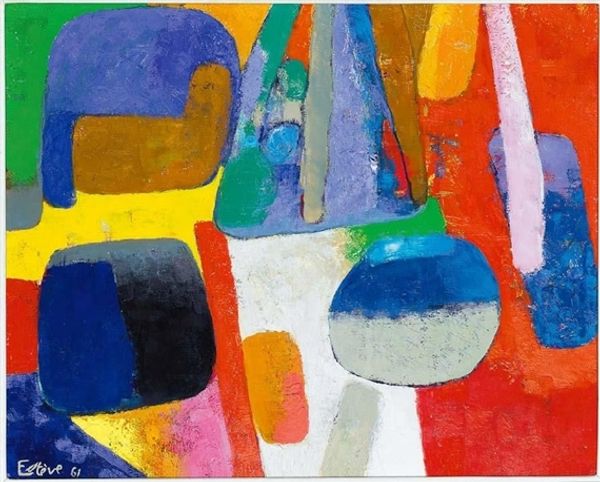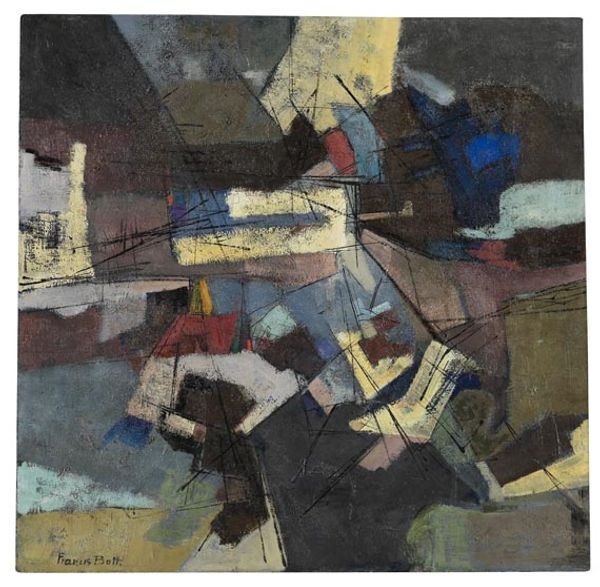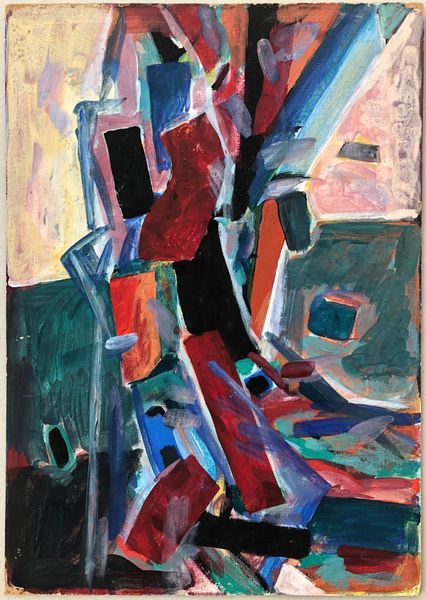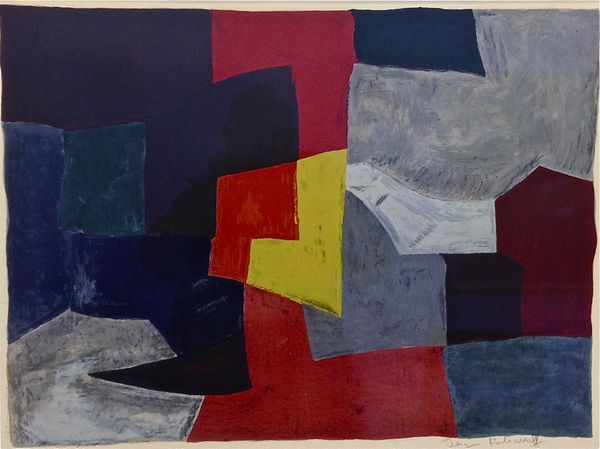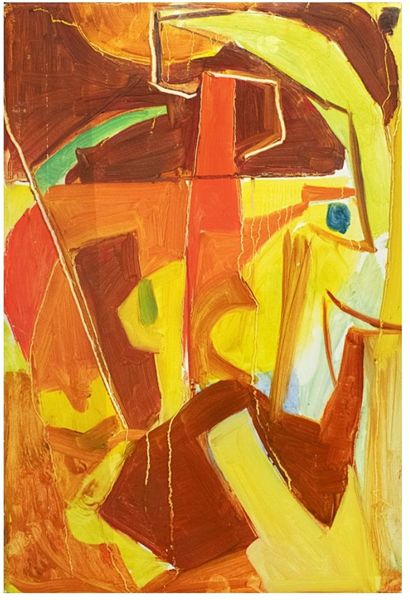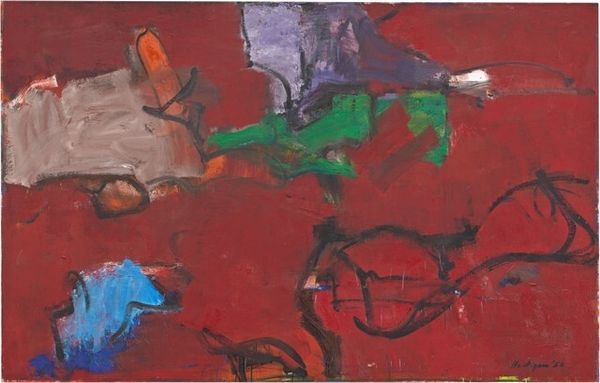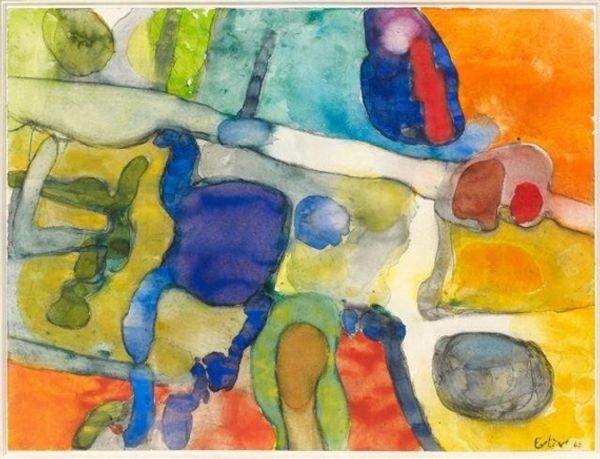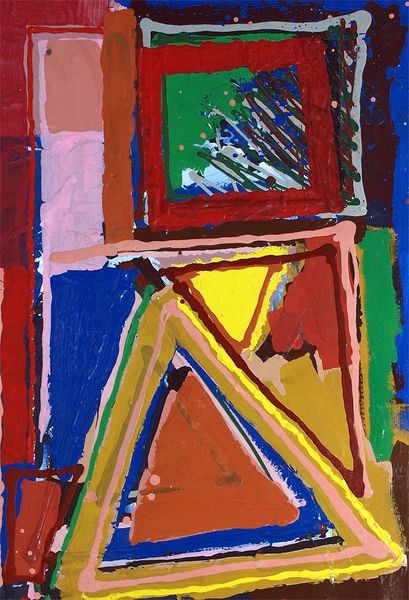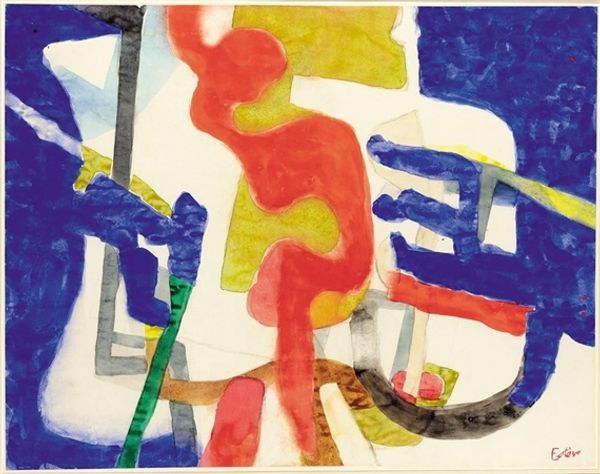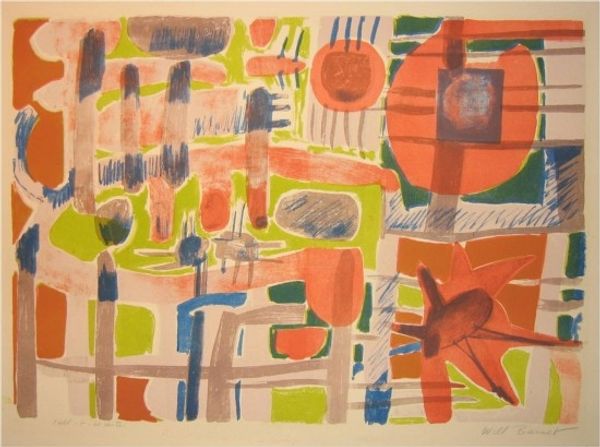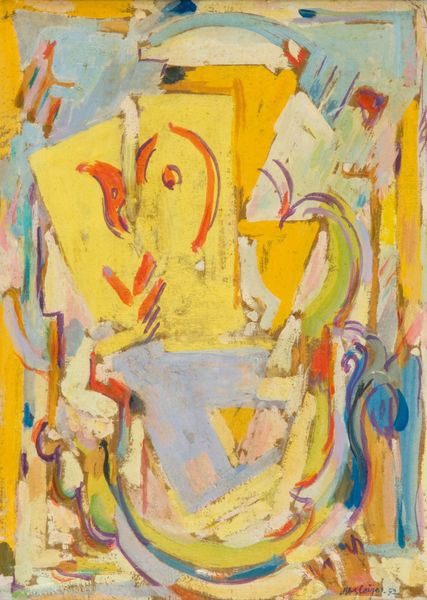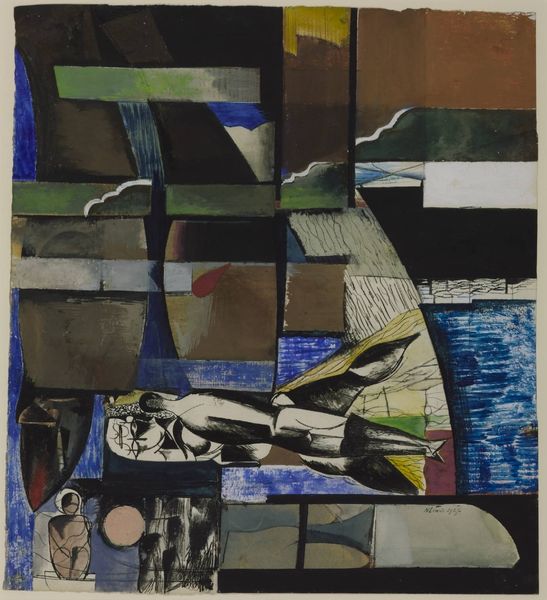
watercolor
#
colour-field-painting
#
abstract
#
watercolor
#
geometric
#
line
#
modernism
Copyright: Maurice Esteve,Fair Use
Maurice Esteve's "Composition 166" presents a bold arrangement of watercolor on paper. It asks us to consider the evolving role of abstract art within the cultural landscape of 20th-century France. In a post-war era, artists turned away from traditional representation, mirroring a society in flux. Esteve's interplay of shapes and colors reflects a broader artistic dialogue, challenging the conventions of academic painting and established institutions. His composition invites us to question the boundaries of art itself. To understand Esteve fully, we need to delve into the cultural and institutional context in which he worked, the galleries that supported him, and the critical debates of his time. By exploring these social and institutional histories, we can uncover a richer understanding of abstract art and its place in modern society.
Comments
No comments
Be the first to comment and join the conversation on the ultimate creative platform.
